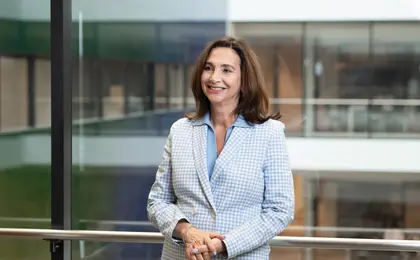
Boris Sigal ’14
MBA
Co-Executive Director, Community Purchasing Alliance
In the first months of the Great Recession, Boris Sigal ’14 said, the “incredibly asymmetric effects” of the financial crisis on marginalized communities were impossible to ignore. Sigal, who had worked on Barack Obama’s 2008 presidential campaign, wondered if the organizing strategies that had worked for Obama could be used in an economic context.
“There was a whole set of questions about what can organizing do to solve some of these challenges,” he explained to Prof. Kate Cooney, on a recent episode of CitySCOPE, a podcast produced as part of her course Inclusive Economic Development Lab. “What does it look like when you try to organize around money and economics?”
In 2009, Sigal joined Groundswell, helping lay the foundation for what eventually became a cooperative purchasing entity serving schools, churches, and other organizations. Sigal came to the Yale School of Management in 2012 and immediately put his interest and expertise in community and economic development into practice.
Working jointly with Yale University and the City of New Haven, he began to explore how Yale’s purchasing—totaling almost $1 billion each year—affects businesses and communities around New Haven. In particular, he analyzed how Yale’s strategic decision to consolidate with a national broadline food distributor from a more distributed model reduced the opportunities for contracts with the food production businesses in and around New Haven.
“That [decision] certainly has created a lot of efficiency and at times probably get[s] better deals, but has also really had effects on how money flows through the region,” Sigal said.
By facilitating dialogue between Yale’s purchasing leadership and local suppliers, Sigal was able to help bring some of Yale’s food business back to New Haven.
Today, Sigal is co-executive director of the Community Purchasing Alliance in Washington, D.C. Working with more than 160 nonprofit organizations, Sigal and his team have helped redirect nearly $20 million in purchasing contracts to local businesses, more than 40% of which are minority owned.
Sigal, whose family fled the former Soviet Union in the 1990s, says economic development is about more than growth.
“To me, economic development or wealth building really is driving toward a more relevant set of questions, which isn’t just, ‘Are we growing?’ but more of the qualitative side of it,” he said. “‘How are we growing? Who is it benefitting?’”





